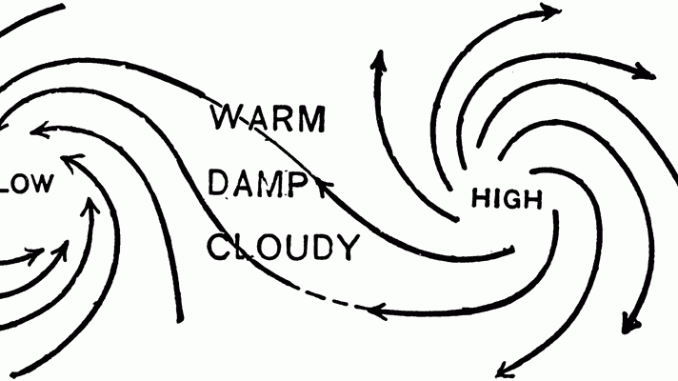
Cyclone– A storm or system of winds that rotates about a center of low atmospheric pressure, advances at a speed of 30 to 50 kilometers an hour, and often brings heavy rain.
Important GK Quiz Cyclone and Anticyclone for SSC CGL, Railway, UPSC, PCS Competative Exam
Name of cyclone in different regions–
- Indian Ocean- Cyclones
- Atlantic- Hurricanes
- Western Pacific and the South China Sea- Typhoons
- Western Australia- Willy-willies
- Japan- Taifu
- Philippines- Baguio
- USA- Tornadoes
Types of Cyclones–
- Tropical Cyclones
- Polar Cyclones
- Meso Cyclones
Tropical Cyclones– It is occur over tropical ocean regions. It is two ty
Polar Cyclones– It is occur over Polar Regions of Greenland, Siberia and Antarctica. It is strong during winter season.
Mesocyclone– It is air that rises and rotates around a vertical axis, usually in the same direction as low pressure systems in a given hemisphere. These types of cyclones are accompanied by the rotating air within the thunderstorm.
Effects of Cyclones and Hurricanes–
- Causes heavy rainfall and landslides.
- They causes a lot of towns and villages,causing severe damage.
- They harm the ecosystem of the surrounding region.
- Agricultural land is severely affected, especially in terms of water supply and soil erosion.
- It causes harm to human, plant and animal life.
Anticyclone– A system of winds that rotates about a center of high atmospheric pressure clockwise in the northern hemisphere and counterclockwise in the southern, that usually advances at 30 to 50 kilometers per hour, and that usually has a diameter of 2400 to 4000 kilometers.
Leave a Reply